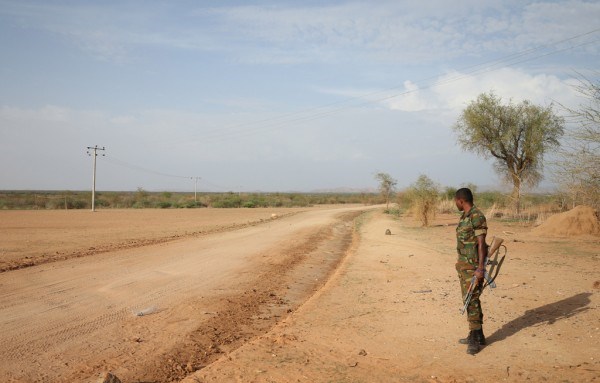
Friday July 13, 2018

An Ethiopian rebel group declared a unilateral ceasefire on Thursday after parliament removed it from a list of banned terrorist groups as part of a reform drive led by the new prime minister.
The Oromo Liberation Front (OLF) has fought for autonomy for the Oromiya region - Ethiopia's largest - since 1993. It was designated a terrorist group by the government in 2008.
"The temporary declaration of ceasefire will take us to the final declaration of bilateral cessation of hostilities once and for all and conclusion of the conflict," the group said in a statement published by state-affiliated media.
The move comes a week after Ethiopia's parliament ruled that the group, along with the secessionist Ogaden National Liberation Front (ONLF) and the Ginbot 7 opposition movement, were no longer terrorist groups.
Abiy, who took office in April, is spearheading a bold push to shake the African nation of 100 million people from decades of security-obsessed rule.
He has acknowledged and condemned widespread abuses by security forces, likening it to state terrorism, and in the most stunning development yet, forged peace with sworn enemy Eritrea, ending a lengthy military standoff that followed a 1998-2000 border war in which 80,000 people are thought to have died.
In Eritrea's capital Asmara this week, the 41-year-old leader said that the neighbouring nations would solve outstanding issues by "building bridges of love".
He has also rescinded a state of emergency and announced plans to partially open up the economy, including attracting foreign capital into the state-run telecoms company and a national airline - both mouth-watering investment prospects given Ethiopia's size and rapid growth.
In another break from the past, the prisons chief was fired last week along with four senior colleagues hours before a Human Rights Watch report that detailed torture at one notorious prison and urged the government to hold officials to account.
Also on Thursday, the president of Ethiopia's Somali region said his provincial government had released thousands of inmates who were jailed for their links to the ONLF, one of the opposition groups that is no longer banned.
"Today, there is no single inmate jailed for involvement with the ONLF. We have released all prisoners under this reform drive," said Abdi Mohamoud Omar, who said the prisons were in the process of being turned into schools, hospitals and mosques.
"I am not saying we never made mistakes. We did, and we apologise to our people. We need to turn hatred into coexistence and love," he told reporters, in language that mirrored the prime minister's tone in recent public addresses.
The shake-up by Abiy, a polyglot former soldier and himself a member of the Oromo ethnic group, has won plaudits from Asmara to Washington and drawn comparisons to the 1980s reforms of Soviet leader Mikhail Gorbachev.
However, it has also attracted opposition from hardliners in the Tigrayan People's Liberation Front (TPLF), the ethnic Tigrayan party that has dominated the government and the economy since taking power in 1991.